Analysis + Opinion | 2021
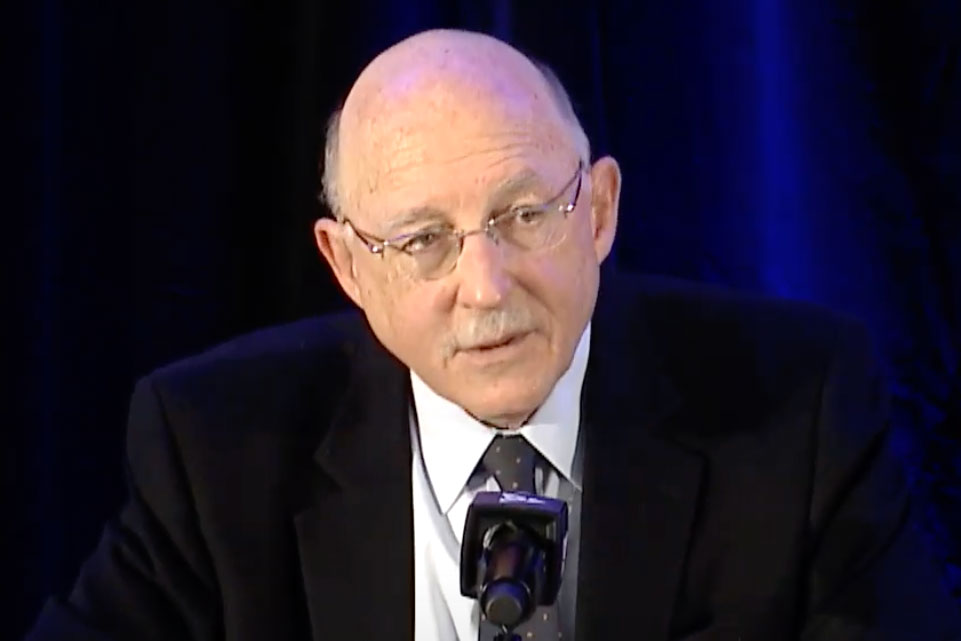 |
Analysis + OpinionDecember 23, 2021Americas alliances: Achieving common endsBarry PosenKoch InstituteBarry Posen joins Rajan Menon, Kori Schake, and Tom Wright to debate the future of American security commitments in the 21st Century. Alex Ward moderated the Koch Institute event. Posen argues that US alliances must be reexamined because they no longer serve US strategic interests. His remarks (lightly edited) are provided here along with a link to the entire debate on YouTube. |
 |
Analysis + OpinionDecember 15, 2021US-China first strike showdown: Rising nuclear tensionsNational Committee on US-China RelationsWhy is China rapidly bulking up its nuclear arsenal, and why now? What does this spell for an already fraught US-China security relationship? And how should the United States respond in its efforts to maintain "strategic stability”? Taylor Fravel weighs in at a recent event sponsored by the National Committee on US-China Relations. |
 |
Analysis + OpinionDecember 10, 2021Can the world change course on climate?SHASS CommunicationsPolitical scientist Nazli Choucri discusses challenges and hopes for global coordination on climate issues — and the role of political science in the process. |
 |
Analysis + OpinionNovember 28, 2021Nobel Prize-winning journalist Maria Ressa won't be silencedAda PetriczkoBoston GlobeMaria Ressa faces up to 60 years in prison in the Philippines on charges of cyber libel and tax evasion, both of which human rights advocates decry as a harassment campaign. But the embattled journalist refuses to be silenced. |
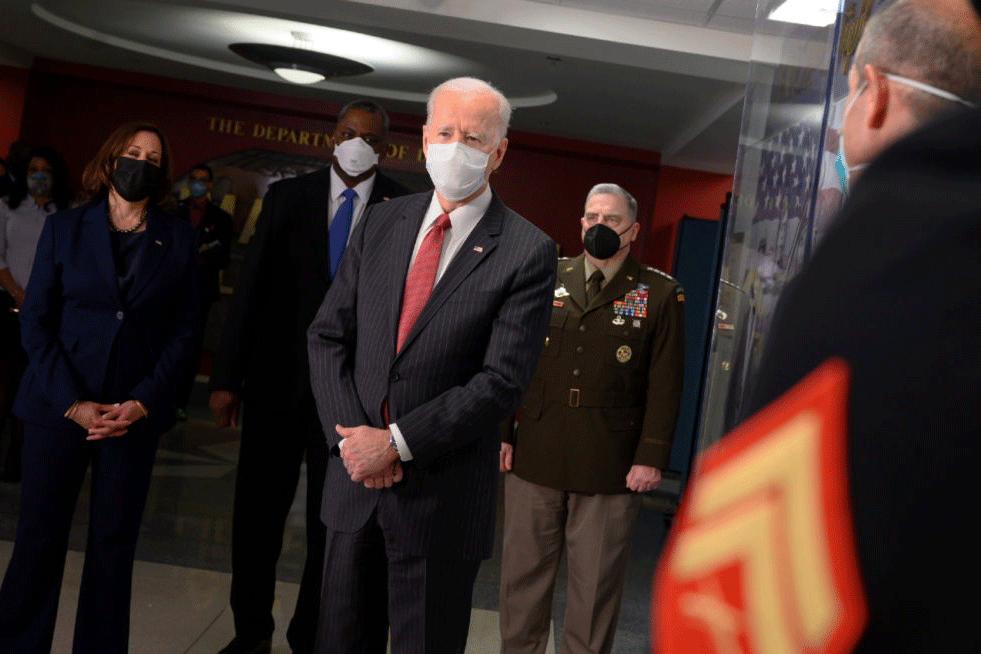 |
Analysis + OpinionNovember 17, 2021How Americans' views of the military have changed over 20 yearsRonald R Krebs and Robert RalstonWar on the RocksAmericans’ views on the relationship between civilian leaders and the military are disturbing. When it comes to decisions about the use of force, recent surveys demonstrate that Americans are inclined to disempower civilians and defer to the professional military’s judgment. |
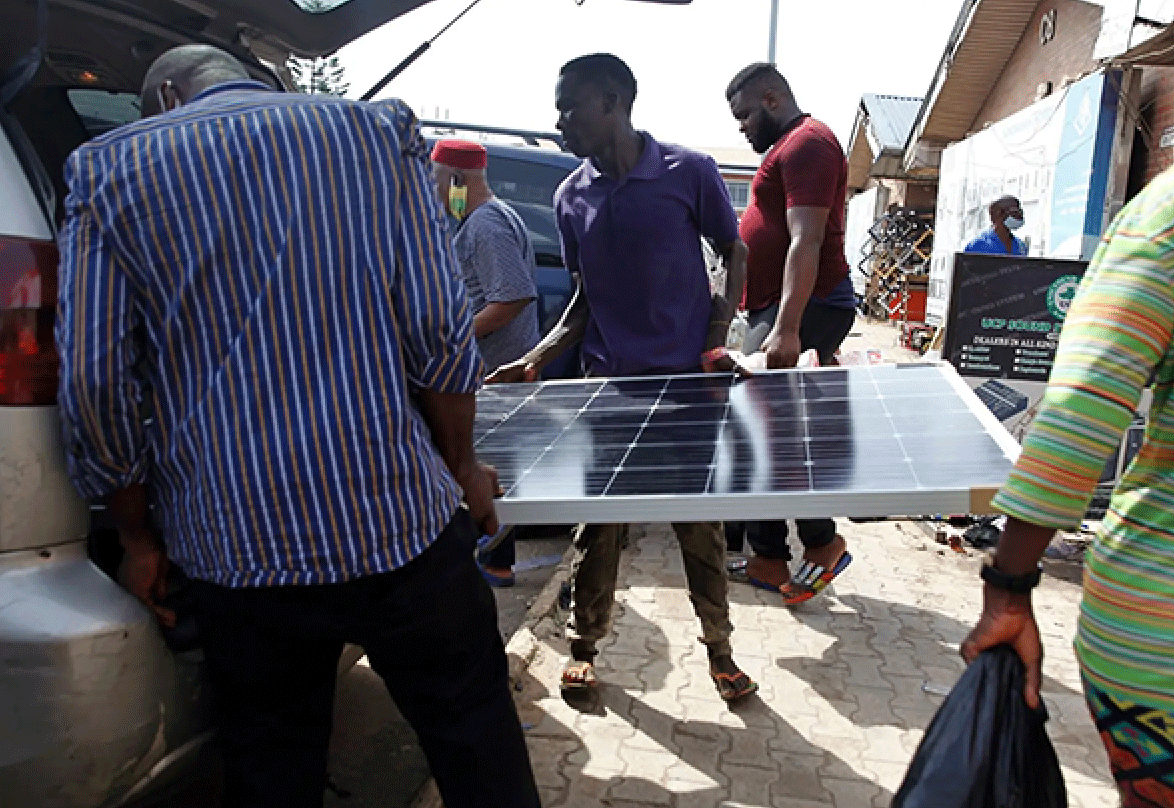 |
Analysis + OpinionNovember 12, 2021The world needs to quit oil and gas. Africa has an idea: Rich countries first.Shola LawalNew York TimesAs world leaders meet at COP26 in Glasgow, some African leaders and activists are, for the first time, vocally opposing a speedier pivot to renewables for their countries. |
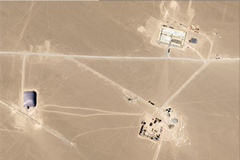 |
Analysis + OpinionNovember 11, 2021China’s nuclear arsenal is growing. What does that mean for US-China relations?Fiona Cunningham, Taylor FravelWashington PostThe new Pentagon report reveals China’s worries about US missile defenses. While any potential changes in Beijing’s nuclear strategy are unclear, three questions stand out regarding how Beijing might seek to use silo-based missiles to deter the United States.
|
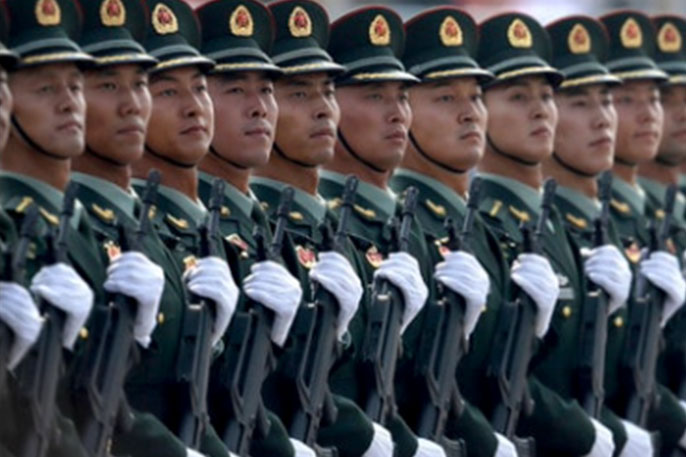 |
Analysis + OpinionNovember 11, 2021Underplaying the China threatKunal SinghHindustan TimesThe government has consciously decided to downplay China’s aggression. This has possible benefits but also costs, explains Kunal Singh for the Hindustan Times. |
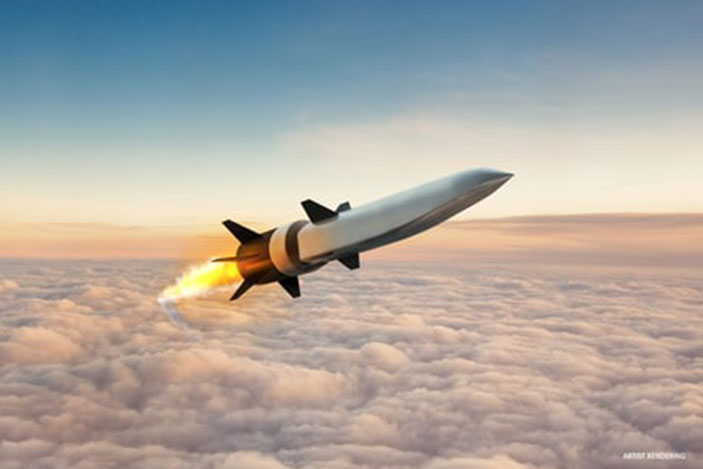 |
Analysis + OpinionOctober 24, 2021What is nuclear China up to?Kunal SinghHindustan TimesThe possibility of a US-China conflict is much higher now, or at least the leadership in Beijing thinks so. If there is a conventional conflict between the US and China, over, say, Taiwan, it can escalate to nuclear levels. |
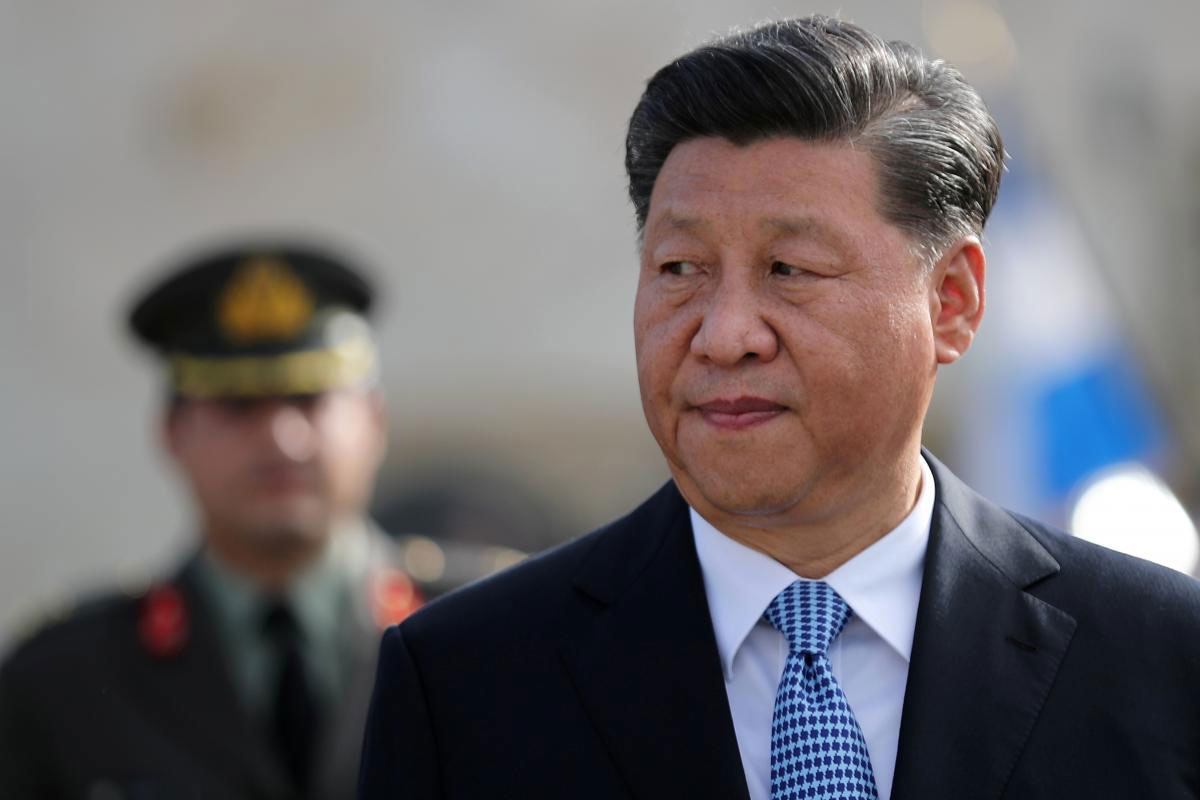 |
Analysis + OpinionOctober 19, 2021Is US foreign policy too hostile to China?Eric Heginbotham and Shivshankar MenonForeign AffairsForeign Affairs asks the experts about US foreign policy toward China and whether it has become too hostile. Participants were asked to state whether they agreed or disagreed with a proposition and to rate their confidence level in their opinion. Eric Heginbotham, a principal research scientist at the MIT Center for International Studies and Shivshankar Menon, a former CIS Robert E Wilhelm Fellow, were asked to weigh in. |
 |
Analysis + OpinionOctober 7, 2021In Europe's new humanitarian crisis, border security is prioritized over human rightsAda PetriczkoBoston GlobeThis new crisis is a stark reminder that the EU migration policy prioritizes border security over human rights. It is likely that pushbacks wouldn't have become such an obvious tool of choice now if they hadn't been widely practiced in Croatia, Cyprus, France, Greece, Italy, Malta, Slovenia, and Spain for the past five years with the silent approval of EU institutions. |
 |
Analysis + OpinionSeptember 30, 2021Why conservatives turned on the US militaryRonald R Krebs and Robert RalstonForeign AffairsConservative American pundits and politicians have found a surprising new punching bag: the “woke” US military. “Anti-American indoctrination [is] seeping into parts of our military,” Senator Tom Cotton, a Republican from Arkansas, railed in a hearing of the Senate Armed Services Committee in June. “Holy crap,” Senator Ted Cruz, a Republican from Texas, tweeted in May in response to a recruitment ad showcasing the US Army’s diversity. “Perhaps a woke, emasculated military is not the best idea.” |
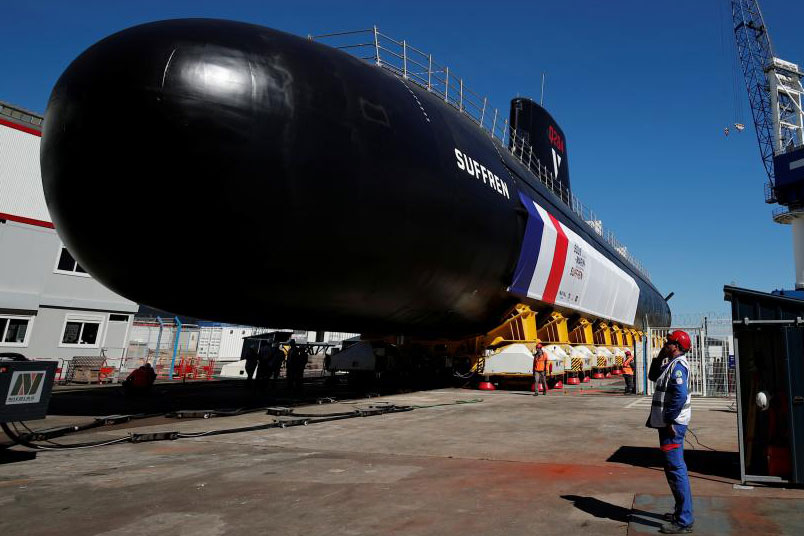 |
Analysis + OpinionSeptember 30, 2021Don’t sink the nuclear submarine dealCaitlin TalmadgeForeign Affairs"The benefits of AUKUS outweigh the proliferation risks," says Caitlin Talmadge, associate professor of security studies at the Edmund A Walsh School of Foreign Service at Georgetown University. Talmadge is a research affiliate of the MIT Security Studies. |
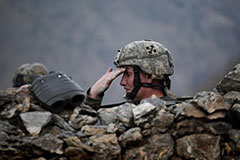 |
Analysis + OpinionSeptember 29, 2021Beyond forever warDaniel Benjamin and Steven SimonForeign AffairsAfter years of hopeful delusions that the era of jihadi terrorism was past, it is indeed time for US policymakers to refocus on the threat. But returning to the fearfulness and hyperventilation that plagued the decade and a half before Trump is not the way to do it. |
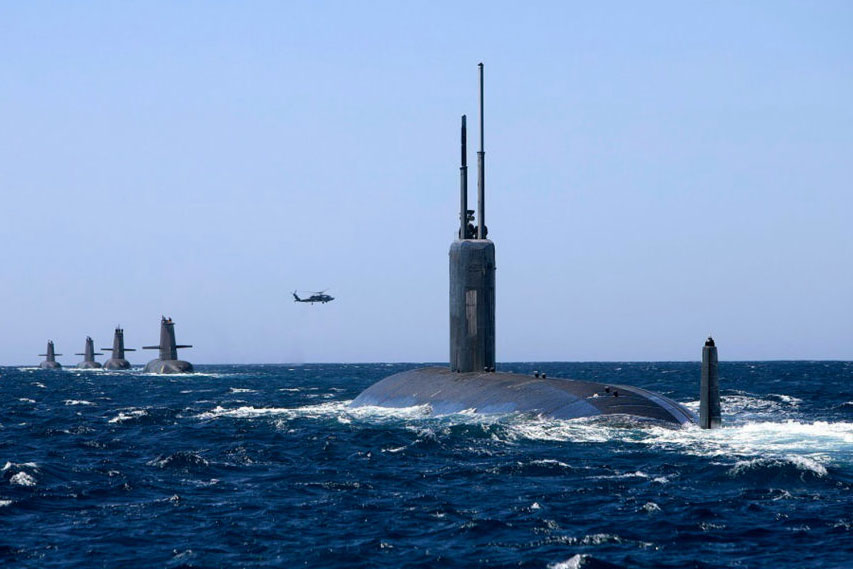 |
Analysis + OpinionSeptember 29, 2021Don't count your submarines before they're builtErik SandWar on the Rocks |
 |
Analysis + OpinionSeptember 24, 2021The Texas abortion law has an Eastern European ring to itAda PetriczkoThe Boston GlobeSince Texas effectively banned most abortions, I've been in a state of perpetual deja vu. The media coverage and the language used at both ends of the political spectrum all ring close to home. Weirdly so, given that home is 5,000 miles away from Texas. |
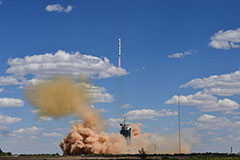 |
Analysis + OpinionSeptember 21, 2021Private eyes in the skyErik Lin-Greenberg and Theo MilonopoulosForeign AffairsErik Lin-Greenberg and Theo Milonopoulos discuss how commercial satellites are transforming Intelligence in a recent article in Foreign Affairs. |
 |
Analysis + OpinionSeptember 20, 2021Will America ever reckon with the human cost of the Afghanistan war?John TirmanDAWNIt is difficult to know if Americans would care more if they knew more. But one modest remedy is for Congress to empower an agency to calculate the human costs of war in real time and hold regular hearings that demand accountability from the president for the consequences of US war making. |
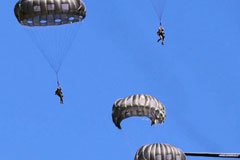 |
Analysis + OpinionSeptember 7, 2021A new transatlantic division of labor could save billions every year!Barry R PosenBulletin of the Atomic ScientistsThe US defense effort consumes roughly three-quarters of a trillion dollars per year and makes up a quarter of all Federal spending and half of all federal discretionary spending. Because resources are scarce relative to plausible projects and money is fungible, the defense effort should, like other federal spending, be subjected to close scrutiny. Read Barry Posen's opinion piece on spending. |
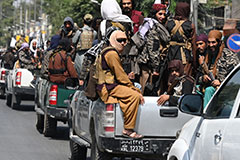 |
Analysis + OpinionSeptember 2, 2021Afghanistan was a Ponzi scheme sold to the American publicAlan Richards and Steven SimonForeign PolicyAs the political fight over who lost Afghanistan gets bloodier, the latest round has shifted from lamentation over the probable return of al Qaeda to the disorderly exit from Kabul. Vivid images of chaotic activity at the airport underscore this concern. But, in fact, the withdrawal could never have been orderly, as critics unthinkingly imply. An orderly, carefully prepared exit was structurally impossible. |
 |
Analysis + OpinionAugust 26, 2021Why America can’t build allied armiesRachel TecottForeign AffairsToo often, the United States’ efforts to train and equip foreign militaries have been motivated by bureaucratic logic rather than sound strategy. Rachel Tecott explains in this opinion piece. |
 |
Analysis + OpinionAugust 19, 2021How can we neutralize the militias?Steven Simon and Jonathan StevensonThe New York ReviewThe threat of violence from domestic far-right extremists calls for a measured and well-coordinated response from law enforcement and intelligence services according to this opinion piece by Robert E Wilhelm Fellow Steven Simon (with Jonathan Stevenson). |
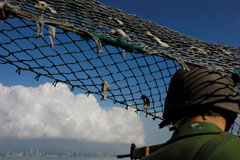 |
Analysis + OpinionAugust 16, 2021Strait of emergency? Debating Beijing’s threat to TaiwanRachel Esplin Odell and Eric HeginbothamForeign AffairsRecent articles that warn of the growing risk of Chinese aggression in the Taiwan Strait have become so common that they have created something of an invasion panic in Washington—one that is damaging to both the United States’ and Taiwan’s interests according to Rachel Esplin Odell and Eric Heginbotham |
 |
Analysis + OpinionAugust 9, 2021The Taliban has seized more cities, despite US efforts to build a strong Afghan military. What happened?Rachel TecottThe Washington PostPersuading partners to emulate the US military approach doesn’t necessarily work, new research finds. Rachel Tecott explains in this opinion piece. |
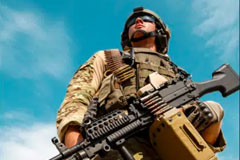 |
Analysis + OpinionAugust 6, 2021The transatlantic relationship: Radical reform is in the US national interestBarry R PosenThe Hague Centre for Strategic StudiesThe North Atlantic Alliance is now over 70 years old and much has changed since its birth. The United States role in the alliance, its interests and how best to pursue them, are due for a serious reconsideration and Barry Posen argues that the Biden Administration should look carefully at US interests in Europe and the threats to those interests. |
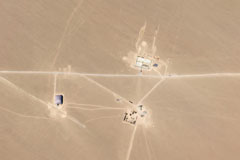 |
Analysis + OpinionAugust 3, 2021Commercial satellites — not US intelligence — revealed China’s missile programTheo Milonopoulos and Erik Lin-Greenberg The Washington PostThe proliferation of commercial satellites has upended a near-monopoly on government intelligence gathering. And this also means leaders now have less freedom — both politically and strategically — to handle this kind of news. |
 |
Analysis + OpinionJuly 26, 2021Public-private partnerships key to providing high-quality broadband to allSteven KoltaiThe Hill"Billions for broadband" are about to pour out of Washington. That sounds good, but it is not aligned with the reality faced by many individual states, counties and towns. In rural – as well as some poor urban – areas, the "business model" for private ISPs “prevents” them from offering service. |
 |
Analysis + OpinionJuly 24, 2021Want to fix the Border Patrol? Don't carbon-copy the playbook to reform policeJosh Kussman and Chappell LawsonAZ CentralThe Border Patrol needs reform, but it can't be a rigid, top-down approach. Here are 4 ways to make changes happen - and make them last according to Chappell Lawson. |
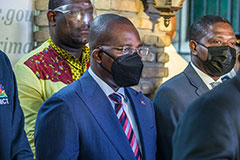 |
Analysis + OpinionJuly 21, 2021How the US could really help HaitiMalick GhachemAmericas QuarterlyWhat are the options for American policy makers to help Haiti? Military intervention or an international protectorate are out of the question on both moral and practical grounds. It is also difficult to envision Washington’s promised security assistance as more than temporary and limited. |
 |
Analysis + OpinionJuly 7, 2021Politicians aren’t usually saints. But Pope Francis just put one on the path to sainthood.Emma Campbell-MohnThe Washington Post, Monkey CageIs the pope endorsing the European Union? Emma Campbell-Mohn, a PhD student in the Department of Political Science and the Security Studies Program, explains in a recent essay in the Washington Post's Monkey Cage. |
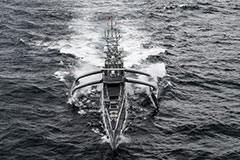 |
Analysis + OpinionJuly 2, 2021Freedom of navigation operations: A mission for unmanned systemsTrevor ProutyBy properly executing a transition to unmanned system freedom of navigation operation (FONOPs), the United States can use technological advances to ensure a continuing ability to “provide a legal order that will, among other things, facilitate peaceful international uses of the oceans.” |
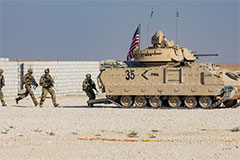 |
Analysis + OpinionJuly 1, 2021US airstrikes in Iraq and Syria, explainedKristen de GrootPenn TodayThe United States has carried out airstrikes targeting Iranian-backed militias in Iraq and Syria in recent days. The Biden administration said the attacks on weapons storage facilities were meant to deter increasing violence by the militias Kata’ib Hezbollah and Kata’ib Sayyid al-Shuhada. The Iraqi Shia paramilitary groups had conducted drone attacks against US troops in Iraq over the last few months. Who exactly are those militia groups, and why is the US responding in this way at this time? |
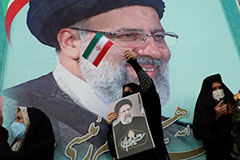 |
Analysis + OpinionJune 28, 2021Why Iran may be in no hurry to get nuclear weapons even without a nuclear dealMayumi FukushimaRand CorporationHistory shows that many countries with advanced nuclear technologies but without nuclear bombs opt to stay that way, rather than rushing to build nuclear weapons as soon as they can. |
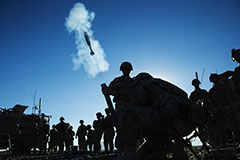 |
Analysis + OpinionJune 22, 2021Is Washington right to leave Afghanistan?Foreign AffairsForeign Affairs asks experts—including faculty and students affiliated with the Center and the Security Studies Program—to state whether they agreed or disagreed with the withdrawal from Afghanistan. They were also asked to rate their confidence level in their opinion. An excerpt of their responses are featured here. |
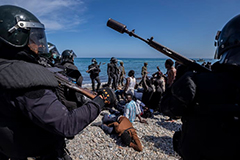 |
Analysis + OpinionJune 2, 2021Morocco ‘weaponized’ migration to punish Spain. That’s more common than you think.Strategically engineered migration is far more common than most people realize. At any given time, somewhere in the world, leaders inside or outside governments are likely manipulating migrants and/or refugees to pursue political, military or economic objectives. Here’s what we know. |
 |
Analysis + OpinionMay 23, 2021How Japan is falling shortSamuel LeiterNational InterestFor its own sake, Japan must end its time on the American cheap-ride and invest politically and financially in its own defense, writes Samuel Leiter. Leiter is a PhD candidate at MIT. This essay took first prize in the 2021 John Quincy Adams Society/The National Interest Student Foreign Policy Essay Contest. |
 |
Analysis + OpinionApril 29, 2021How not to win allies and influence geopoliticsAudrye Wong's essay in the May/June 2021 issue of Foreign Affairs describes China's self-defeating economic statecraft. Wong is a Grand Strategy, Security, and Statecraft Postdoctoral Fellow at the Harvard Kennedy School and the Massachusetts Institute of Technology’s Security Studies Program. |
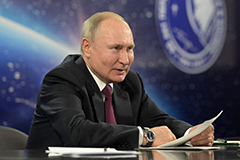 |
Analysis + OpinionApril 21, 2021Russia: A problem, not a threatJoshua ShifrinsonNewsweekTo be sure, Russia is a destabilizing force in Europe and the Middle East, led by a government with a horrible civil liberties and human rights record. Nevertheless, these issues do not require the U.S. to treat Russia as an adversary or a threat to core American interests. Instead, Russia is a problem child in international relations that can, and should, be coolly managed. |
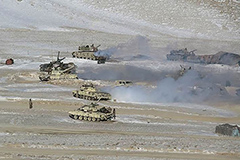 |
Analysis + OpinionMarch 3, 2021China and India are pulling back from the brink. They’ve created a buffer zone and started talks.M Taylor FravelThe Washington PostThe disengagement may be a sign of easing tensions along part of the India-China border dispute known as the western sector. Also called Ladakh or Aksai Chin, this area comprises roughly 12,7000 square miles (excluding areas of Pakistan-controlled Kashmir that India also claims as part of this sector). In multiple areas, China and India hold conflicting views of where the Line of Actual Control (LAC) lies, which creates numerous smaller disputes within the larger territorial conflict. |
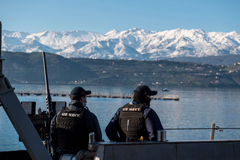 |
Analysis + OpinionFebruary 25, 2021A liberal case for seapower?Jonathan Caverley and Sara McLaughlin MitchellWar on the RocksThe Biden administration should not confuse Trump’s enthusiasm for ships with a coherent vision of the naval forces’ role in his “America First” approach to the world. Jon Caverley and Sara McLaughlin Mitchell weigh in with their thoughts on maritime strategy. |
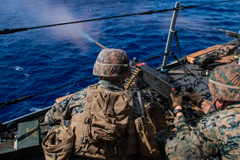 |
Analysis + OpinionFebruary 23, 2021Don't knock yourself out: How America can turn the tables on China by giving up the fight for command of the seasPaul van HooftWar on the RocksThe United States should give up its quest for command of the maritime commons in the Western Pacific. In this piece, Paul van Hooft argues that the United States should not trap itself by framing the rise of China as an existential struggle between two titans that depends on the United States retaining command of the Western Pacific. |
 |
Analysis + OpinionFebruary 22, 2021Sole purpose is not no first use: Nuclear weapons and declaratory policyAnkit Panda and Vipin NarangWar on the RocksAnkit Panda and Vipin Narang exaimine the debate on the US nuclear policy and the “no first use” pledge. This essay was first published in War on the Rocks here. |
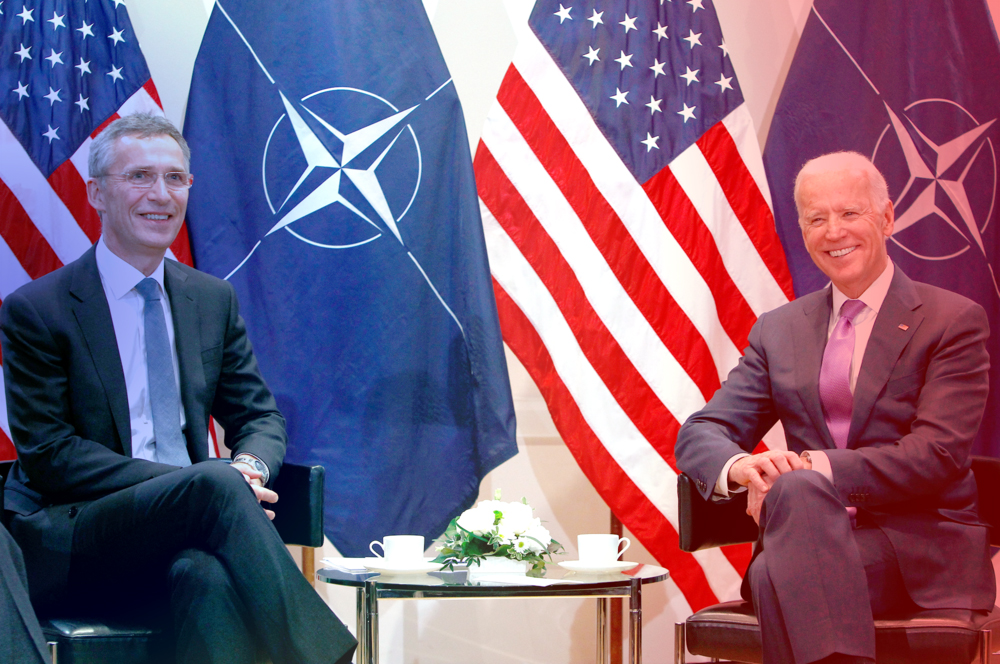 |
Analysis + OpinionFebruary 16, 2021Can Europe defend itself?Barry Posen joins the Eurasia Group Foundation’s Mark Hannah to discuss the future of the alliance and America’s security interests in Europe. They cover Posen’s recent piece for the journal Survival, in which he insists—and demonstrates how—Europe can defend itself. |
 |
Analysis + OpinionFebruary 16, 2021After the apocalypse: US nuclear policyInkstick MediaWhat should the Biden administration prioritize when it comes to US nuclear policy? Heather Williams and Vipin Narang are among the scholars requested to offer their recommendations. |
 |
Analysis + OpinionFebruary 14, 2021Russia’s new crises on the peripheryCarol SaivetzLawfareSince the collapse of the Soviet Union in December 1991, Russia has sought to maintain its sway in the post-Soviet space despite numerous upheavals. Carol Saivetz explains in a recent article first published here in Lawfare. |
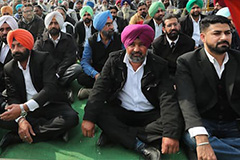 |
Analysis + OpinionFebruary 5, 2021India’s farm protests turned violent last week. But why are farmers protesting in the first place?Saksham Khosla and Aidan MilliffThe Washington PostFarmers remain steadfast in their demands — a full repeal of the new laws. Union leaders promise to continue protests late into the year, and the government shows few signs of backing down from the broader agricultural policy agenda. The standoff will be another hard test of India’s ability to resolve political disputes through peaceful consensus-building. |
 |
Analysis + OpinionJanuary 27, 2021A Middle East Forum can help Biden succeedPresident Joe Biden has yet to outline his overarching strategy for the Middle East. While some in the United States and abroad fret that Biden’s America will disengage from the region and create vacuums that adversaries will exploit the greater likelihood is that the new administration will neither be leaving nor leading in the Middle East. |
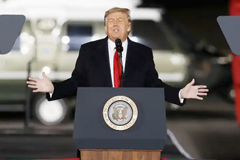 |
Analysis + OpinionJanuary 8, 2021There is no legal way to stop Trump from ordering a nuclear strike if he wants to, expert saysElizabeth N SaundersThe Washington PostVipin Narang comments on Speaker Pelosi's conversation with Chairman of the Joint Chiefs of Staff Mark Milley and discusses the protocol for launching a nuclear strike. “The United States is one of the only countries to have sole launch authority — even Russia does not. It is striking that the Russian system requires an additional vote to Russian President Vladimir Putin’s, but America’s does not.” |


